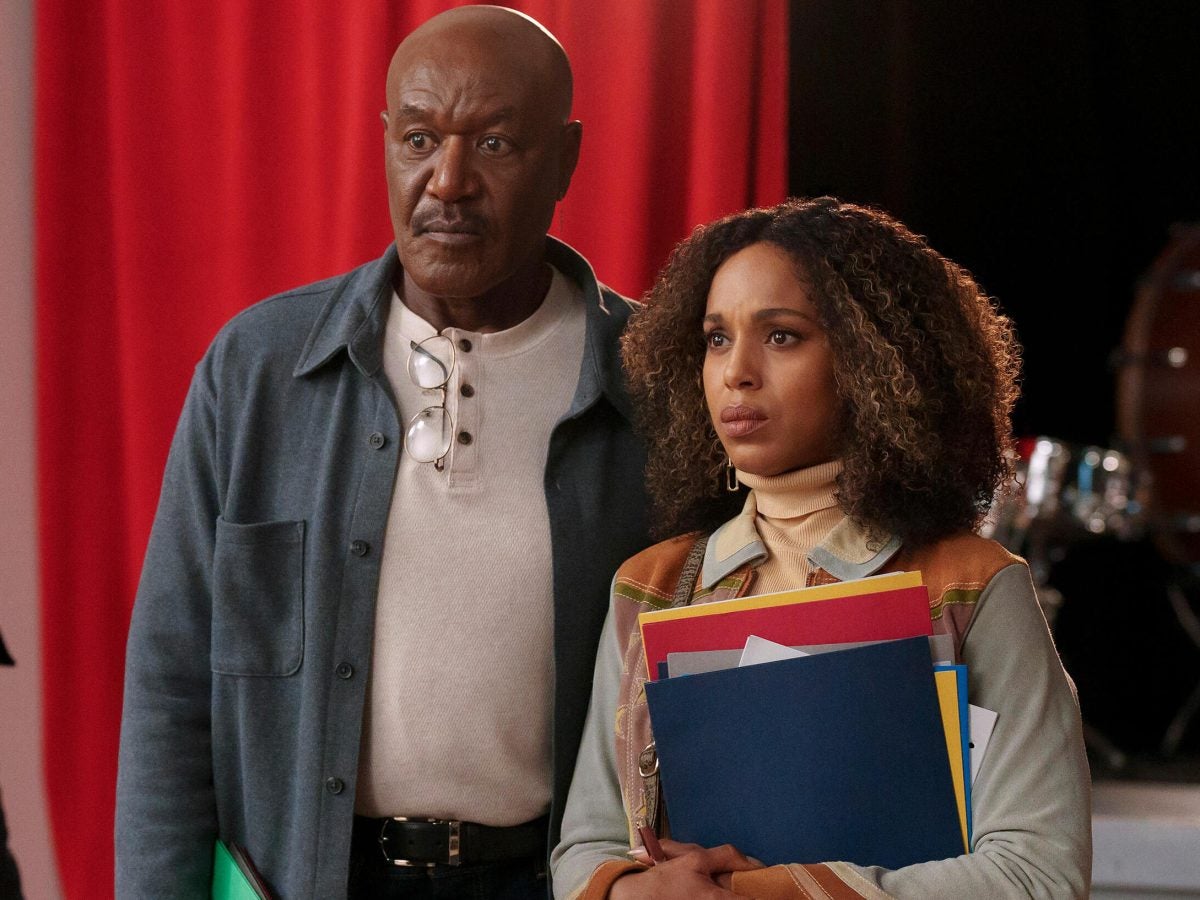
Unprisoned has returned to HULU, finding our main characters fighting toxic cycles with more looks to the past, loud arguments, and laughable moments.
The series follows a therapist and mental health influencer named Paige Alexander (Kerry Washington) and her father Edwin Alexander (Delroy Lindo), a reacclimating citizen determined to stay on the right side of the law after his release from incarceration.
After seventeen years of absence, Edwin’s presence grates on Paige, who struggled to survive foster care without her father. Her nerves are raw and fear keeps her so honed in on his imperfections that she crashes into her own. There’s no infallible silk press or chic trench coat for her to hide behind. This season, we literally see her inner child (Jordyn McIntosh) perturbed by stress.
Paige’s shortcomings attracted Washington to the character.
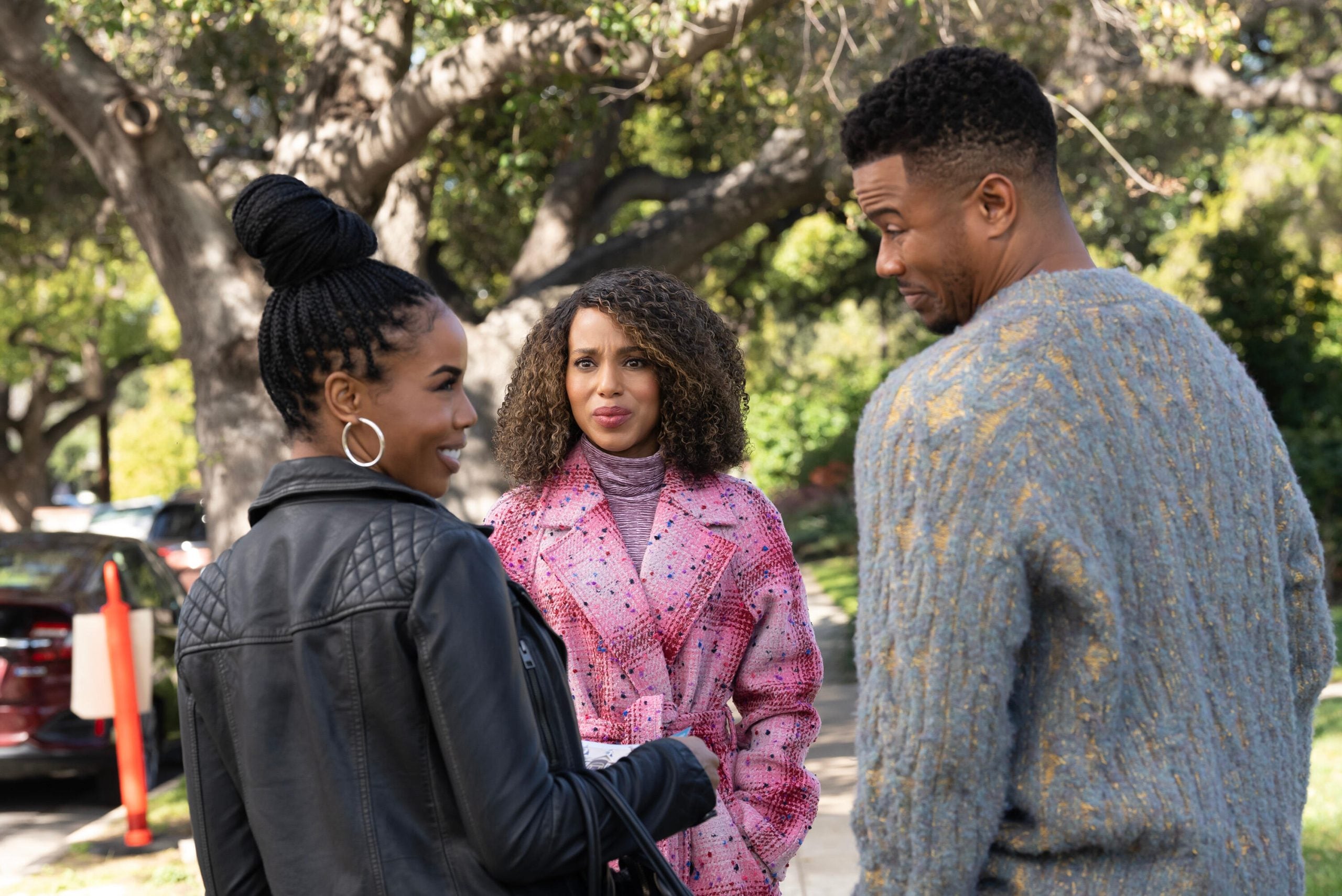
“It’s one of the things I love about playing Paige,” she tells ESSENCE. The character’s facade cracks in several awkward moments throughout the season. One encounter with an old beau (Marque Richardson) and his new partner (Brandee Evans) leaves her broken.
“She is so learned, and she’s had all this training, and in many ways, she can offer really good feedback and insight because she’s very smart, but we all have blind spots, and we all have room for growth.”
Paige and Edwin have barely figured out to be father and daughter when they find themselves in a new dynamic – being co-parents. Together, they try to usher Finn (Faly Rakotohavana), Paige’s son and Edwin’s grandson, through adolescence. Edwin, not rooting his identity in being a perfect parent, is able to spot some cracks in Paige’s approach. Washington explained why she thinks the character misses some of her son’s issues early on.
“It’s maybe threatening to see how much pain her son is in because it means that she’ll have to really deal with some of the realities of her home and some shifts that she needs to make for him,” Washington says.
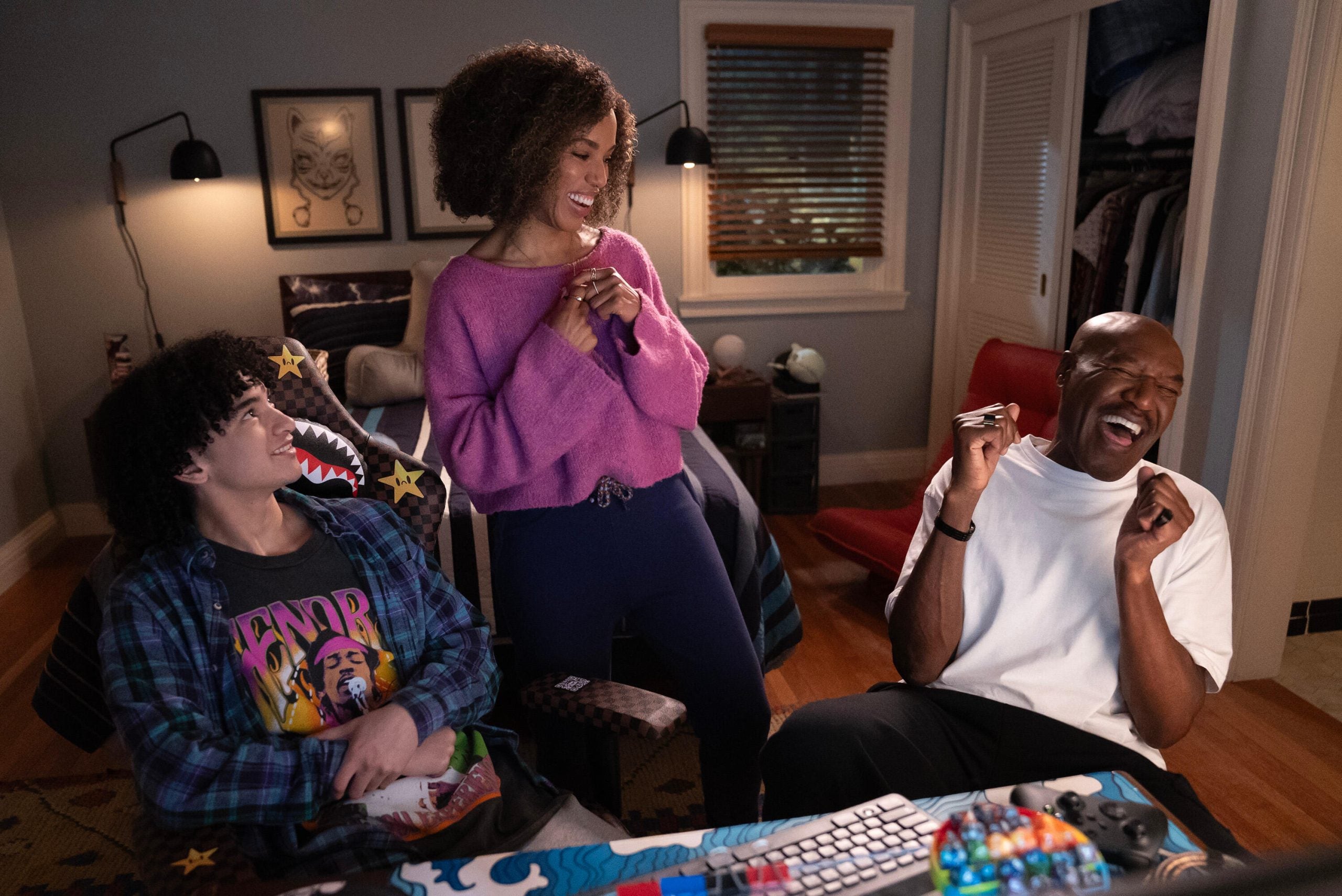
Paige dismisses the way anxiety is changing the course of her child’s life despite her familiarity with the symptoms. In one episode, she labels her son’s issues as natural for The Anxious Generation, a text Washington just finished.
“She sees him. She just doesn’t think it’s that big of a deal because everybody in his generation is dealing with anxiety,” Washington continues. Eventually, she is forced to face what is happening in her own home. “The challenge is, if she’s gonna see him in his particular journey, then she has to be willing to look at herself and how she might be partly responsible as a parent for creating those dynamics for him,” she adds.
Paige is often chastised for “living in the past” when she calls out the neglect she faced in her father’s absence. Lindo explained that he sees every decision Paige’s character makes as “filtered” through her relationship with Edwin.
Every generation is nostalgic for their heyday. Gen Xers were chastised for their beepers chirping. Millennials were cursed for their selfie-taking. Edwin and Paige are concerned with Finn’s reliance on gaming in the virtual world.
“I think every generation has its own particular struggles and unique challenges,” says Washington. “I think there are ideas around community and real-life engagement that are like centuries-old wisdom that are valid. I think there are ideas about connection and community, that are valid and relevant for Finn, but I also think it’s important to keep to always be filtering in the ways that we support young people with new information, new research, new awareness.”
Like Washington, Lindo embraces his character’s challenges. “It forces me to kind of deconstruct my own thinking,” he tells ESSENCE.
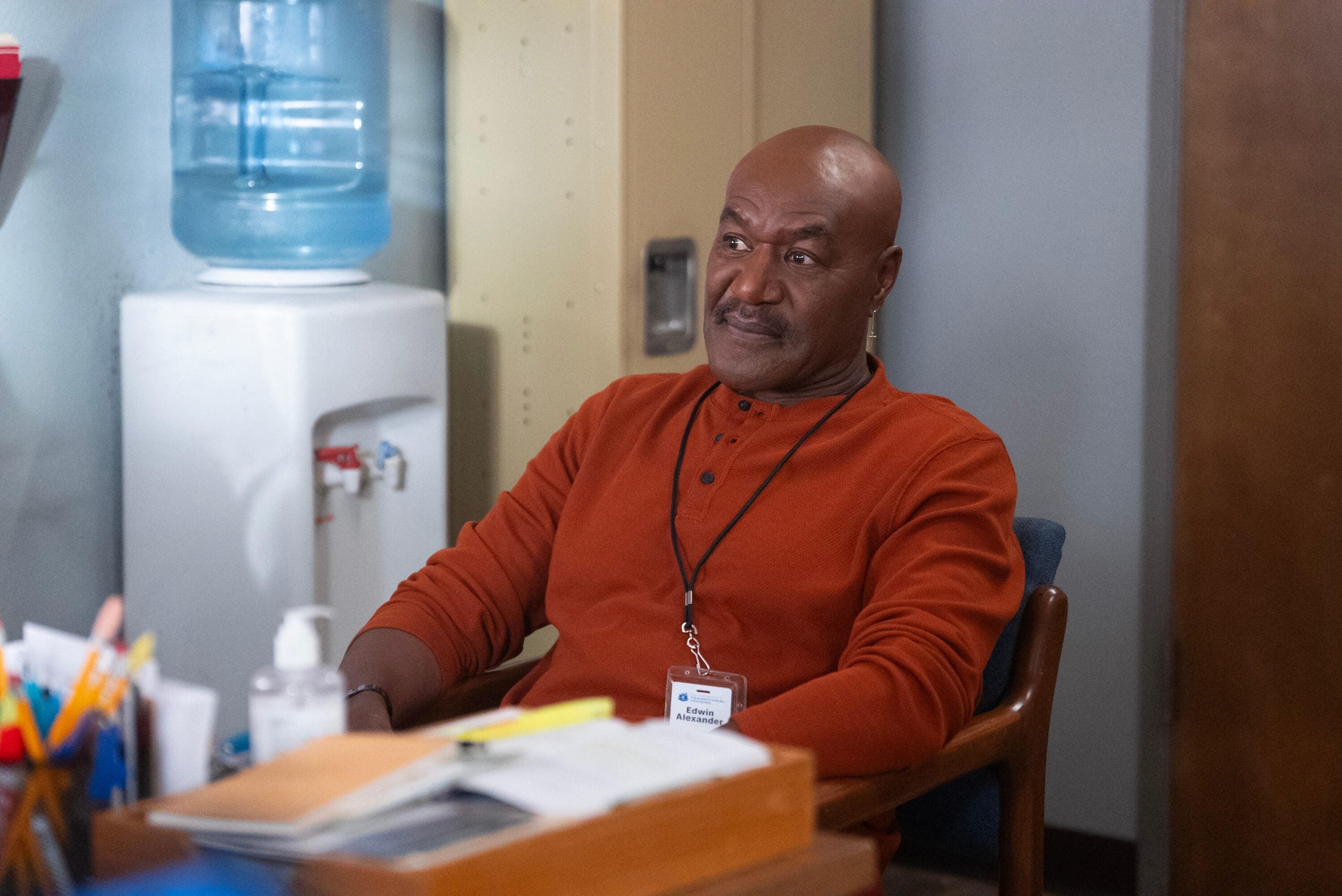
Edwin learns more about his daughter by helping with his grandson,. “One of the challenges of any parent involves allowing their child the space to be who they are. And as a parent myself, I know that can sometimes be a really steep learning curve,” Lindo tells ESSENCE.
Edwin sets aside a situationship to focus on climbing that learning curve.
“Even though I don’t know what the future is, I know that the past cannot be adequate, and I cannot continue to indulge in what I’ve been doing in the past,” Lindo says on behalf of his character. “That does not mean that in that moment I am this extraordinarily evolved human being,” he cautions. “What it means is, in that moment, I’m recognizing, man, I gotta change something up in here. I gotta change this thing.
Unprisoned is a part of theHULU’s Onyx Collective, created by Tracy McMillan and partially inspired by her life. Yvette Lee Bowser, the veteran storyteller behind Living Single and Run The World, serves as the showrunner.
Away from the cameras, the actors support and compliment one another openly. On-screen, their characters either toss jabs or tip-toe. They’re exhausted by the emotional landmines littering their space. It’s a tension many complicated families can relate to, not just those who have seen the inside of prison waiting rooms like McMillan’s.
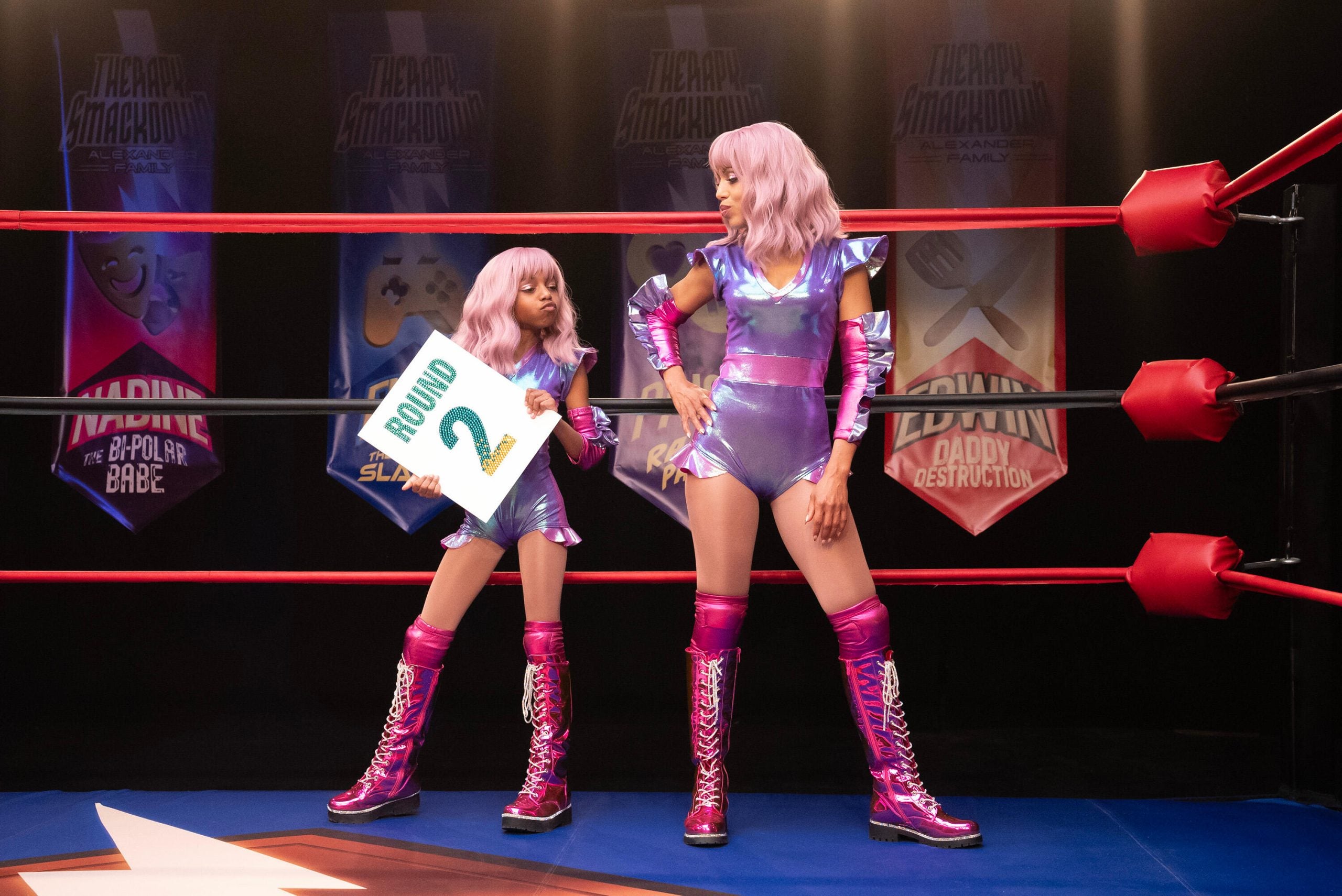
“That’s what makes I believe Unprisoned compelling to audiences,” says Lindo. “We are dealing in perfect spaces, the gray spaces, the Mucky spaces, the messy spaces, and we’re trying to get up out of those spaces and, and try to make things better for all of us as a family, as individuals, and as a family.”
Season 1 and 2 of Unprisoned are now streaming on Hulu.





